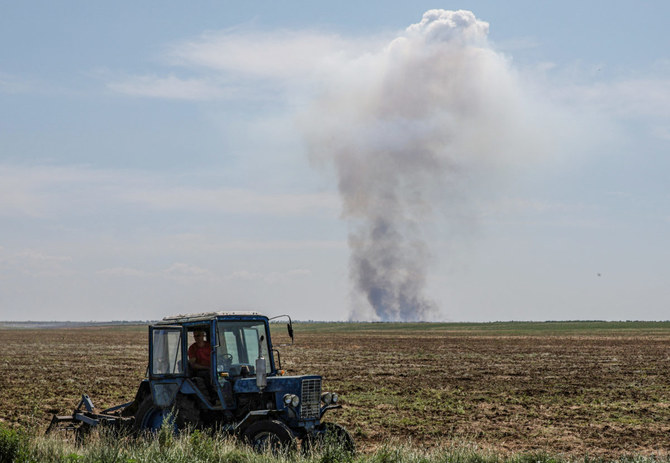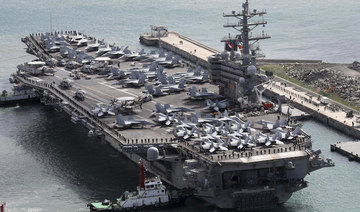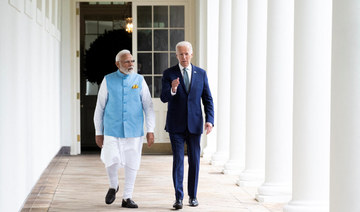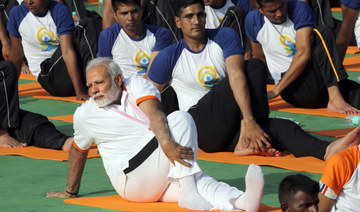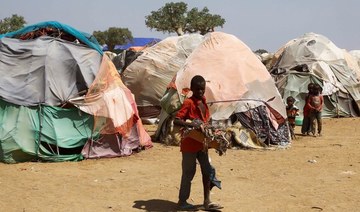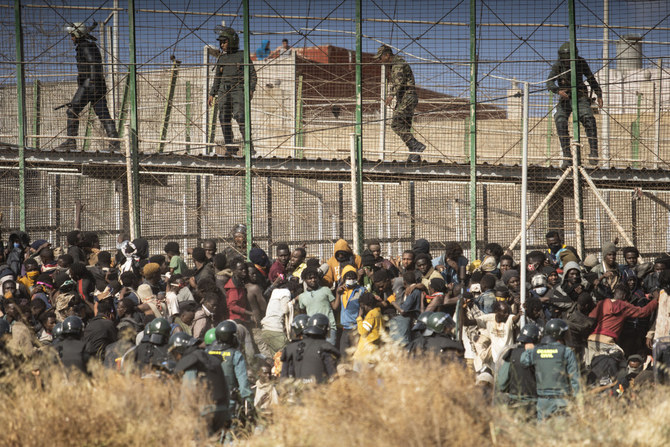KYIV: Russia on Tuesday struck military and infrastructure targets in Ukraine’s capital Kyiv and across other parts of the country, including western areas far from the front lines, Ukrainian officials said.
President Volodymyr Zelensky praised Ukraine’s air defenses for downing more than 30 drones and defiantly said that Ukraine’s forces were destroying Russian forces in the two main theaters of the conflict, the east and south.
His commander of land forces and the deputy defense minister reported successes with a counteroffensive in both areas.
Russia’s Defense Ministry said that Russian forces hit and destroyed eight ammunition warehouses across Ukraine in the prior 24 hours and repelled Ukrainian attacks in three areas.
It said Ukrainian forces had tried to attack the Russian-held eastern city of Donetsk and the southern Zaporizhzhia region, but had been repelled.
Zelensky’s office said drones attacked the Kyiv region in several waves over more than four hours.
Also on Tuesday, Ukrainian forces struck the Russian-controlled town of Nova Kakhovka in the southern Kherson region with drones, killing a women and wounding four civilians, local Russian-appointed authorities said.
FOCUS ON COUNTER-OFFENSIVE
The Russian attacks took place as attention has been focused on Ukrainian actions against Russia’s defensive positions in the south and east — the initial stages of a counteroffensive seeking to push President Vladimir Putin’s troops back from territory seized since the invasion of Ukraine in February 2022.
Kyiv says it has recaptured 113 square km (44 square miles) of land and eight settlements from Russian forces. But the latest strikes showed that Russia was capable of waging war beyond the front lines.
In his nightly video address, Zelensky said Ukrainian forces “in the south and east are actively destroying the enemy, physically cleansing Ukraine.
“A defense against terror means destroying terrorists. And it is a guarantee that the state of evil will never have the opportunity to bring evil to Ukraine.”
General Oleksander Syrskyi, Ukraine’s commander of land forces, said on Telegram that his troops were making progress on the flanks of the shattered eastern city of Bakhmut, which fell to Russian mercenaries last month after months of fighting.
Ukrainian troops, he said, were repelling increasingly intense Russian attacks near Kupiansk in the northeast.
Deputy Defense Minister Hanna Maliar said Ukrainian forces in the south were “gradually, in small steps, but very confidently, making advances. We could even use the allegory that we are carving up every meter of land from the enemy.”
Maliar said Russian forces had mined vast areas, including towns. Ukraine’s military intelligence chief, Kyrylo Budanov, accused Russia of “mining” the pond used to cool reactors at the Russian-controlled Zaporizhzhia nuclear power plant.
Zelensky’s office said several commercial and administrative buildings and some private houses were damaged in the Russian drone attacks on the Kyiv area. There was no mention of any casualties in the overnight air strikes.
A “critically important facility” was struck in Lviv, far from the front lines and around 70 km (43 miles) from the border with Poland, regional governor Maksym Kozytskiy said, without giving details.
The air force said Ukrainian air defenses had been in action, mostly in the Kyiv region, where more than two dozen Iranian-made Shahed drones were destroyed.
The Energy Ministry said debris from falling drones damaged power lines in the Kyiv region and also in the Mykolaiv region in the south, cutting electricity for hundreds of residents.
The air force said Russia had also targeted infrastructure in the southeastern city of Zaporizhzhia with Iskander and S-300 missiles. Ukraine’s military said Russia had fired seven missiles at Zaporizhzhia.
Reuters could not independently verify the reports.
RUSSIAN MINISTER: UKRAINE WANTS TO HIT CRIMEA
Russian Defense Minister Sergei Shoigu said Moscow had information that Ukraine was planning to strike Russian-controlled Crimea with longer-range US and British missiles and warned Russia would retaliate if that happened.
Russia annexed the Crimean Peninsula on the Black Sea from Ukraine in 2014, but considers it to be outside the scope of its “special military operation” in eastern and southern Ukraine.
“The use of these missiles outside the zone of our special military operation would mean that the United States and Britain would be fully dragged into the conflict and would entail immediate strikes on decision-making centers in Ukraine,” Shoigu told a meeting of military officials.
Shoigu also said Ukrainian armed forces had carried out 263 attacks on Russian forces’ positions since June 4, referring to what Moscow regards as the start of Ukraine’s counteroffensive. But it had “not accomplished its goals,” he said.
Ukraine says it has recaptured eight villages.





